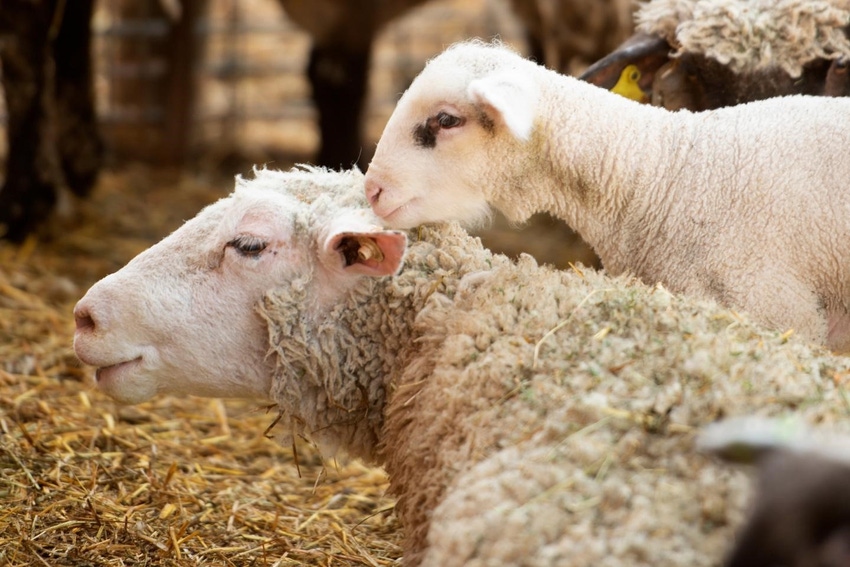New data to contribute to finding genes of important relevance in livestock production.

A large, detailed study of the genomes of ruminants has been completed, giving researchers new insight into their evolution and success.
Ruminants like deer and antelope, as well as sheep, goats, cattle and their wild relatives, have thrived in many ecosystems around the globe, according to the University of California-Davis, which contributed to the study.
The new study was led by Wen Wang and Guojie Zhang at the Kunming Institute of Zoology in China and Rasmus Heller at the University of Copenhagen, Denmark. Professor Harris Lewin with the University of California-Davis department of evolution and ecology and Genome Center also participated.
The study is one of the most extensive, coherent genome projects ever made on animals, the University of Copenhagen said. Three articles published in Science comprise the first phase of results from the project, and there are more to come.
Ruminants form an important part of U.S. and world agricultural systems. U.S. farms and ranches have an estimated 95 million cattle, along with an estimated 5.2 million sheep and 2 million goats, the university said.
According to the Faculty of Science at the University of Copenhagen, the study "unravels some of the important enigmas in evolutionary biology, and several of the results are of human medical interest."
"Our research shows how ruminants have obtained a more efficient use of plant food, e.g., by means of a sophisticated immune system that very precisely regulates the bacterial flora in the rumen. Furthermore, we found adjustments in the metabolism of the animals, rendering the animals capable of exploiting the bacteria's ability to digest plant material. Finally, the ruminants have developed specialized teeth that also increase their food uptake. These are some of the reasons to the success of the ruminants," said Heller, an assistant professor with the department of biology at the University of Copenhagen.
The study showed that, among the 295 newly evolved genes identified in ruminants, many were associated with the digestive system, such as the structure and function of the various stomach compartments.
The team also identified a number of genes associated with horns and antlers, which can play a role in defense or the mating behavior of ruminants.
"With the cutting-edge genome sequencing technology, we can decode the genomes for hundreds of species, which was impossible before. By comparing the genomes of the different species, we are now able to answer controversial questions about their evolution. We can detect genes that are essential for the anatomical hallmarks of the ruminants, such as the multi-chambered stomach and headgear. These are found nowhere else in the animal kingdom," professor Guojie Zhang with the University of Copenhagen explained.
According to the researchers, one of the most important aspects of the study is that basic animal research can lead to surprising new discoveries. For example, many wild ruminants are resistant to costly cattle diseases such as foot and mouth disease, and some might even have developed defense mechanisms against cancer.
The study indicates that the explosive growth of deer antlers (up to 2 cm per day) can be assigned to genes that are involved in a different kind of explosive cell growth, namely cancer. Meanwhile, deer have evolved other gene variants that contribute to keeping cell division in check, preventing it from going out of control and causing damage like what is seen with cancer. Apparently, deer are able to employ a controlled type of cancer-like cell growth to renew their impressive antlers each year.
"I am convinced that our data and results will contribute to finding genes of important relevance in livestock production. We have generated new insights to the basis of, e.g., bone growth, regenerative biology and physiological adaptations to climate and environment. These discoveries may prove to be instrumental in our search of treatments of human diseases in the future. At the same time, we have obtained much more knowledge about the development of this important group of animals, which has mystified researchers for years," Heller added.
The team generated more than 40 trillion base pairs of raw DNA sequences and assembled them into genomes for 44 species.
"The data produced in this study provides a foundational genomic road map for this ecologically and economically important group of mammals," said Lewin, who also chairs the Earth BioGenome Project, a global effort to sequence the genetic code of all the planet's eukaryotes — some 1.5 million known species, including all plants, animals, protozoa and fungi. "It is a tremendous resource not only for understanding how evolution has shaped ruminants but also for understanding the basis of both desirable and undesirable traits, such as inherited diseases."
The researchers have created the Ruminant Genome Database, a public collection of the genomic and transcriptomic data presented in their study.
About the Author(s)
You May Also Like


.png?width=300&auto=webp&quality=80&disable=upscale)
